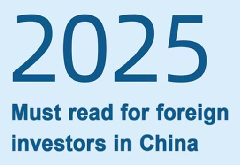Provisions for the Supervision and Administration of Drug Manufacturing
Provisions for the Supervision and Administration of Drug Manufacturing
Promulgated on March 30, 2020
Decree of the State Administration for Market Regulation
No. 28
The Provisions for the Supervision and Administration of Drug Manufacturing, adopted at the first executive meeting of the State Administration for Market Regulation in 2020 held on January 15, 2020, is hereby promulgated and shall come into effect as of July 1, 2020.
Minister Xiao Yaqing
January 22, 2020
Provisions for the Supervision and Administration of Drug Manufacturing
(Promulgated by Decree No.28 of State Administration for Market Regulation on January 22, 2020)
Chapter I General Provisions
Article 1 In order to strengthen the supervision and administration of drug manufacturing and standardize drug manufacturing activities, these Provisions has been formulated according to laws and administrative regulations, such as the Drug Administration Law of the People's Republic of China (hereinafter referred to as the "Drug Administration Law"), Traditional Chinese Medicine Law of the People's Republic of China, Vaccine Administration Law of the People's Republic of China (hereinafter referred to as the "Vaccine Administration Law"), Administrative Licensing Law of the People's Republic of China and Regulations for Implementation of Drug Administration Law of the People's Republic of China.
Article 2 These Provisions shall apply to activities involving the manufacturing and relevant supervision and administration of marketed drugs within the territory of the People's Republic of China.
Article 3 The conduct of drug manufacturing activities shall comply with applicable laws, regulations, standards and norms, to ensure the authenticity, accuracy, integrity and traceability of information throughout the whole process.
To carry out drug manufacturing activities, approval should be obtained from the drug regulatory department of corresponding province, autonomous region or municipality directly under the Central Government, the Drug Manufacturing Certificate shall be obtained, and the Good Manufacturing Practice for Pharmaceutical Products (GMP) should be strictly followed to ensure the manufacturing process continuously complies with statutory requirements.
The drug marketing authorization holders (MAHs) shall establish a drug quality assurance system, fulfill marketing release responsibilities and be responsible for the quality of drugs granted with drug approval license.
Manufacturers of Prepared Slices shall fulfill relevant obligations of drug MAHs and ensure the manufacturing of Prepared Slices continuously complies with regulatory requirements.
Manufacturers of active drug ingredients shall organize manufacturing according to approved manufacturing processes and strictly abide by good manufacturing practice to ensure the drug manufacturing continuously complies with statutory requirements.
Manufacturers of excipients and primary packaging materials and containers subject to bundling review and other entities and individuals engaged in drug manufacturing related activities shall undertake corresponding responsibilities according to law.
Article 4 Drug MAHs and drug manufacturers shall establish and implement drug traceability systems, attach traceability labels to sales package units at each level as specified, implement drug traceability by information-based means, accurately document and retain drug traceability data in a timely manner and provide traceability information to the drug traceability coordination service platform.
Article 5 The National Medical Products Administration (NMPA) is the competent department to regulate drug manufacture nationwide and shall supervise and guide drug manufacture supervision and administration of drug regulatory authorities of provinces, autonomous regions and municipalities directly under the Central Government.
The drug regulatory department of the province, autonomous region or municipality directly under the Central Government is responsible for regulating the drug manufacture within its administrative area and shall undertake licensing, inspection and punishment in drug manufacturing.
The Center for Food and Drug Inspection (CFDI) of NMPA shall organize the formulation of drug inspection technical standards and documents, undertake overseas inspection and organize vaccine inspection, analyze and assess risks found in inspection, make inspection conclusions and propose handling suggestions, and guide and assess the quality management systems of drug inspection agencies of provinces, autonomous regions and municipalities directly under the Central Government.
The Information Center of NMPA is responsible for the construction and management of the drug traceability coordination service platform and drug safety credit archives, and is in charge of the unified coding of drug manufacture sites.
The professional technical institutions for drug review, testing, inspection, monitoring and evaluation set or designated by drug regulatory departments shall undertake the technical work and draw technical conclusions according to their duties, providing technical supports for the regulation of drug manufacture.
Chapter II Manufacture Authorization
Article 6 Undertaking of drug manufacturing shall meet the following requirements:
(1) having legally qualified pharmaceutical professionals, engineering professionals and the necessary technical workers, a legal representative, principal of the company, person in charge of production management (hereinafter referred to as "production responsible person"), the persons in charge of quality management (hereinafter referred to as "quality responsible person"), qualified persons and other relevant personnel complied with the conditions stipulated in the Drug Administration Law or the Vaccine Administration Law;
(2) having the premises, facilities, equipment and hygienic environment required for drug manufacturing;
(3) having the institutions and personnel capable of quality control and testing for the drugs to be manufactured;
(4) having instruments and equipment essential for quality management and testing for drugs to be manufactured;
(5) having rules and regulations to ensure the quality of drugs, and in compliance with the requirements of the GMP.
Undertaking of vaccine manufacture shall additionally meet the following requirements:
(1) equipped with appropriate scale and sufficient capacity reserved.
(2) established systems, facilities and equipments to ensure biological safety; and
(3) meeting the needs of disease prevention and control.
Article 7 To engage in the manufacturing activities of preparations, active drug ingredients or Prepared Slices, the applicant shall submit an application to the drug regulatory department of province, autonomous region or municipality directly under the Central Government where the manufacturer is located according to the requirements on application documents specified in these Provisions and by the NMPA.
A drug MAH entrusting others for manufacturing drug products shall comply with the conditions specified in items (1), (3) and (5) in Paragraph 1 under Article 6 of these Provisions, sign an entrustment agreement and quality agreement with a drug manufacturer that meets relevant conditions, submit related agreements and application documents of the actual manufacturing site to the drug regulatory department of the province, autonomous region or municipality directly under the Central Government where the drug MAH is located and apply for the Drug Manufacturing Certificate according to these Provisions.
The applicant shall be responsible for the authenticity of all information on the materials for application.
Article 8 After receiving the application, the drug regulatory department of the province, autonomous region or municipality directly under the Central Government shall handle it according to different cases:
(1) For those application items that are not within its duties, the relevant department may make a prompt decision of non-acceptance and inform the applicant to resubmit the application to the applicable administrative agency;
(2) If the application items are not subject to administrative licensing, the applicant shall be informed of non-acceptance in time;
(3) For those applied documents which have any error that can be corrected on the spot, corrections shall be allowed to be made by the applicant on the spot;
(4) If the application materials are incomplete or do not meet the requirements for format examination, the notification on correcting and supplementing materials of amendments shall be sent to the applicant on the spot or within five days, with all the content needs to be corrected or supplemented at one time. The application materials shall be deemed as accepted since the date of submission if there is no notification after the timeline.
(5) The application shall be accepted if the materials are complete and conforming to the required format examination, or if the applicant has submitted all the supplementary and corrected materials as required.
The drug regulatory department of the province, autonomous region or municipality directly under the Central Government shall, either acceptance or non-acceptance against the application for the Drug Manufacturing Certificate, issue a Notification of Acceptance or a Notification of Non-Acceptance with the seal of the department specially designated and the date indicated.
Article 9 The drug regulatory department of the province, autonomous region or municipality directly under the Central Government shall make a decision within 30 days since the date at which the application is accepted.
The application shall be approved if it meets the requirements after review, and the Drug Manufacturing Certificate shall be issued within 10 days since the date of written approval. A written decision to disapprove the application along with an explanation shall be given if it does not meet the requirements.
The drug regulatory department of the province, autonomous region or municipality directly under the Central Government shall organize technical review and evaluation of application documents and on-site inspection according to relevant regulations such as the GMP.
Article 10 The drug regulatory department of the province, autonomous region or municipality directly under the Central Government shall publish information about the Drug Manufacturing Certificate application on the website and work place of the administrative agency, including required conditions, procedures, timeline, a list of all the submitted documents and a sample application form.
The information in connection with granting the Drug Manufacturing Certificate by the drug regulatory department of the province, autonomous region or municipality directly under the Central Government shall be disclosed to public, and the public shall have the right to access it.
Article 11 The drug regulatory department of the province, autonomous region or municipality directly under the Central Government shall disclose the review result and provide convenience to the applicant to inquire about the review progress during review of application of Drug Manufacturing Certificate.
Without consent of the applicant, the drug regulatory department, professional technical institutions and their staff shall not disclose the commercial secrets, undisclosed information or confidential business information submitted by the applicant, unless otherwise specified by law or where national security or major social and public interests are involved.
Article 12 Where an application for the Drug Manufacturing Certificate directly involves the significant interests of the applicant and stakeholders, the applicant and stakeholders have the right to apply for a hearing pursuant to applicable laws and regulations.
During the investigation on an application of a drug manufacturer, the drug regulatory department of the province, autonomous region or municipality directly under the Central Government shall disclose matters which are involving public interests in the approvals to the public and hold a hearing procedure.
Article 13 The Drug Manufacturing Certificate is valid for a period of 5 years and made in original and duplicate. The format of Drug Manufacturing Certificate shall be unified and determined by the NMPA. The electronic Drug Manufacturing Certificate and the paper certificate have the same legal effect.
Article 14 The Drug Manufacturing Certificate shall describe the following information including license number, classification code, company name, unified social credit code, residence (business place), name of the legal representative, name of the company principal, name of production responsible person, name of quality responsible person, name of the qualified person, address of manufacturing site and manufacturing scope, the authority which issues the Certificate, the date of issuance, and the valid term etc.
Items such as company name, unified social credit code, residence (business place) and legal representative etc. shall be consistent with that described in the business license issued by the administrations of market regulation.
Article 15 Items specified by the Drug Manufacturing Certificate are classified as licensing items and filing items.
Licensing items refer to the address of manufacturing site and the manufacturing scope etc.
Filing items refer to the enterprise name, residence (business place), name of the legal representative, name of the company principal, name of production responsible person, name of quality responsible person, name of the qualified person etc.
Article 16 In the case of changes in Drug Manufacturing Certificate items, an application shall be submitted to the original issuing authority that issued the Drug Manufacturing Certificate. Any change in licensing items without prior approval is not allowed.
The original issuing authority shall, within 15 days since the date at which it receives an application of the company for such changes, make a decision on whether to approve such changes. In the case of disapproval, the authority shall send the company a written explanation for disapproval and inform the applicant that it has the right to ask for an administrative reconsideration or file an administrative lawsuit pursuant to applicable laws.
To change the address of manufacturing site or the manufacturing scope, the drug manufacturer shall, in accordance with the provisions of Article 6 of these Provisions and relevant technical requirements, submit relevant materials related to the changes to the local drug regulatory department of the province, autonomous region or municipality directly under the Central Government for review and approval.
To build, rebuild or expand a workshop or manufacturing line at the original site or another site, relevant regulations and technical requirements shall be met, and relevant materials regarding the change shall be submitted to the local drug regulatory department of the province, autonomous region or municipality directly under the Central Government for GMP compliance inspection. The manufacturer shall be notified of the inspection results. Products on which the inspection results comply with relevant regulations, meeting release requirements, can be sold and marketed. Related changes shall be specified in the duplicate of the Drug Manufacturing Certificate.
Where the above changes involve information included in the drug approval license and its attachments, they shall be approved by the drug regulatory department of the province, autonomous region or municipality directly under the Central Government and reported to the Center for Drug Evaluation of NMPA for updating related information in the drug approval license and its attachments.
Article 17 In the case of changes in the filing items for the Drug Manufacturing Certificate, an application for filing such changes shall be submitted to the original issuing authority within 30 days after the approval of the administrations of market regulation for such changes or the completion of such changes by the company. The original issuing authority shall go through the filing procedure for such changes within 10 days after receiving the application from a company.
Article 18 After any change made to the Drug Manufacturing Certificate, the original issuing authority shall record the content and time of changes in the duplicate of the Certificate, issue the newly-reviewed original copy of the Certificate based on the changes and withdraw the old original copy. The expiry date of the Certificate shall remain the same after changes filing.
Article 19 In the case of continuing the drug manufacturing following the expiration of the Drug Manufacturing Certificate, the company shall apply to the original issuing authority for renewal of the Drug Manufacturing Certificate 6 months ahead of the expiration.
The original issuing authority shall review such an application in accordance with risk management principles and taking into account the facts about the company's compliance with drug administration laws and regulations, the performance of the GMP and quality systems. A decision on whether to re-issue the Drug Manufacturing Certificate shall be made by the original issuing authority prior to the expiration. The original issuing authority shall re-issue the new Certificate if the company is eligible and withdraw the old original copy of the Certificate; or shall make a written decision not to re-issue the Certificate, specify relevant reasons and inform the applicant that it has the right to apply for administrative reconsideration or file an administrative lawsuit pursuant to applicable laws. If no decision is made within the timeline, it shall be deemed as agreeable to re-issue the Certificate, and the original issuing authority shall help to go through the procedure of re-issuance.
Article 20 In any of the following circumstances, the original issuing authority shall revoke the Drug Manufacturing Certificate and make an announcement:
(1) An application for the revocation of the Drug Manufacturing Certificate is voluntarily submitted;
(2) The Drug Manufacturing Certificate has expired but not been re-issued;
(3) The business license has been withdrawn or cancelled according to law;
(4) The Drug Manufacturing Certificate has been withdrawn or cancelled according to law;
(5) Other circumstances the administrative license shall be revoked specified by laws and regulations.
Article 21 In the event that a drug MAH or manufacturer has lost the Drug Manufacturing Certificate, they may apply to the original issuing authority for a replacement of the Certificate. The original issuing authority shall issue the replacing Drug Manufacturing Certificate with the same previously authorized contents within 10 days. The information such as Certificate number and valid term specified on the replacing Certificate shall be the same as that specified on the original Certificate.
Article 22 No entity or individual shall forge, alter, rent, lend, or buy and sell the Drug Manufacturing Certificate.
Article 23 The drug regulatory department of the province, autonomous region or municipality directly under the Central Government shall update the information on the activities, including issuance, re-issuance, changes, replacement, revocation, rescission and cancellation, done to the Drug Manufacturing Certificate in the drug safety credit archive of the NMPA within 10 days since the date such activities are conducted.



